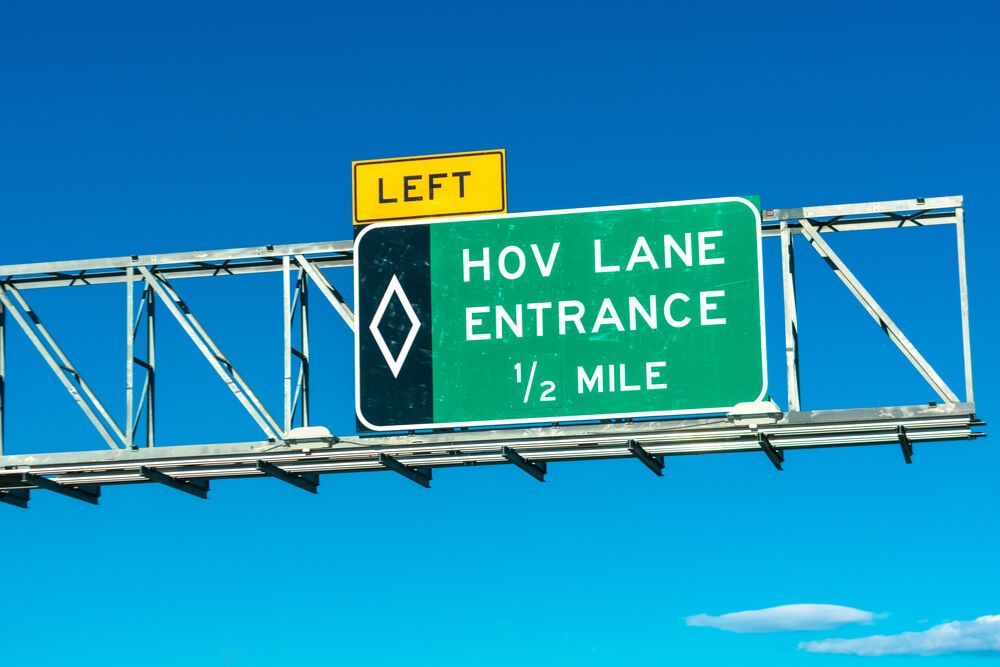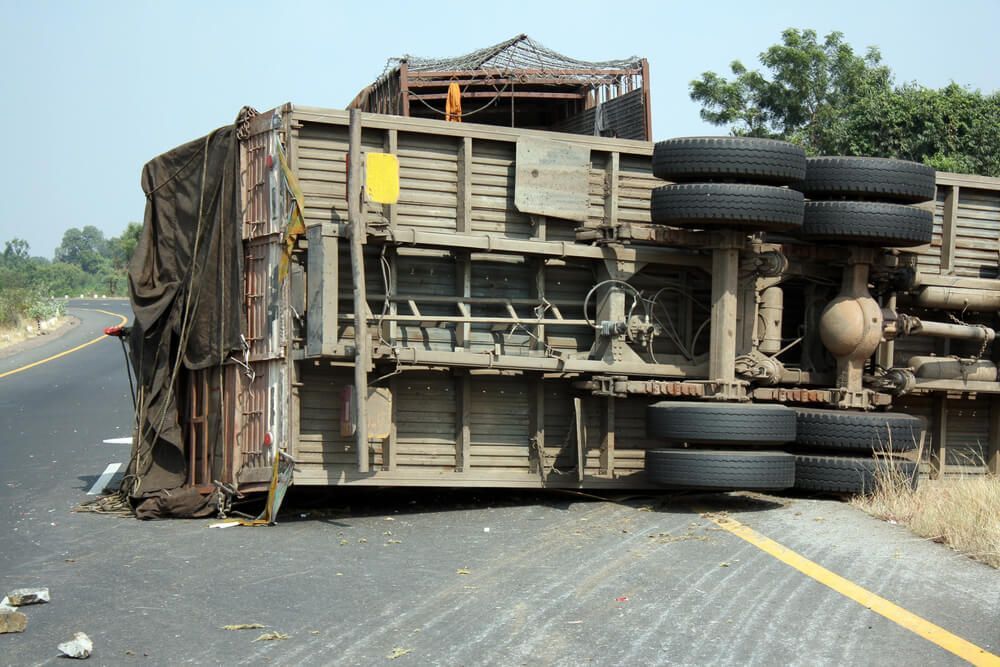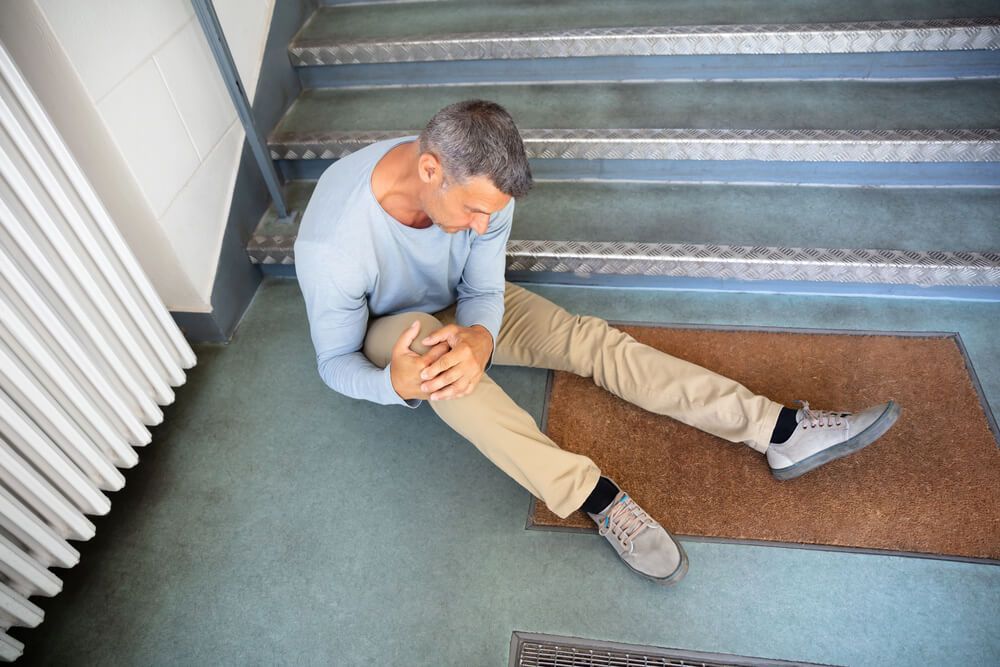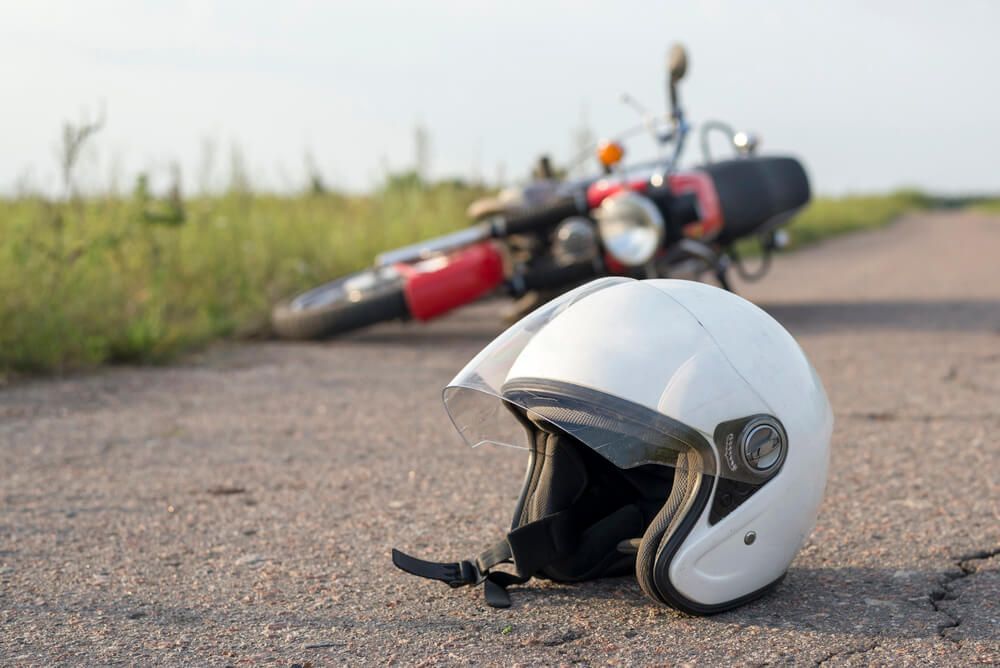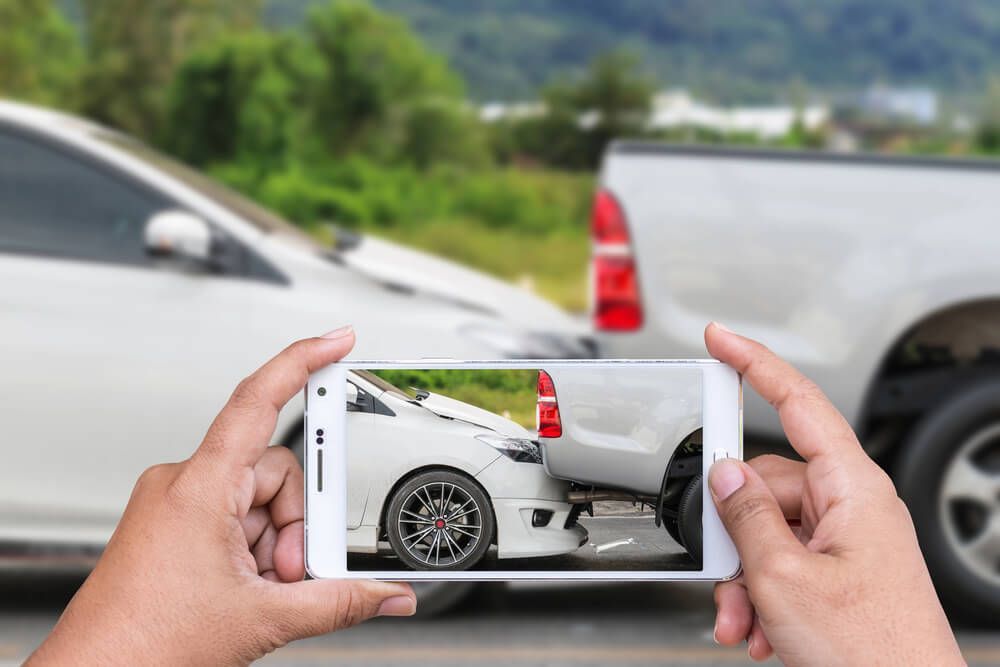What To Do After an ATV Accident in Arizona
Recent Blog Posts
What To Do After an ATV Accident in Arizona
The natural beauty of the Arizona desert makes it a popular destination for recreational users of all-terrain vehicles. The freedom to venture off-road without the restrictions of riding on public highways is part of the appeal of riding an ATV. Unfortunately, that freedom comes with a price.
According to a 2022 United States Consumer Product Safety Commission report, there were more than 517,000 injuries caused by off-road vehicle accidents in the United States between 2017 and 2021. During that same period, 53 people died in ATV accidents in Arizona.
Dealing with the aftermath of an ATV accident isn't as straightforward as a typical auto wreck. The steps you take after play an important role in how well you recover physically and financially.
Steps To Take After an ATV Accident in Arizona
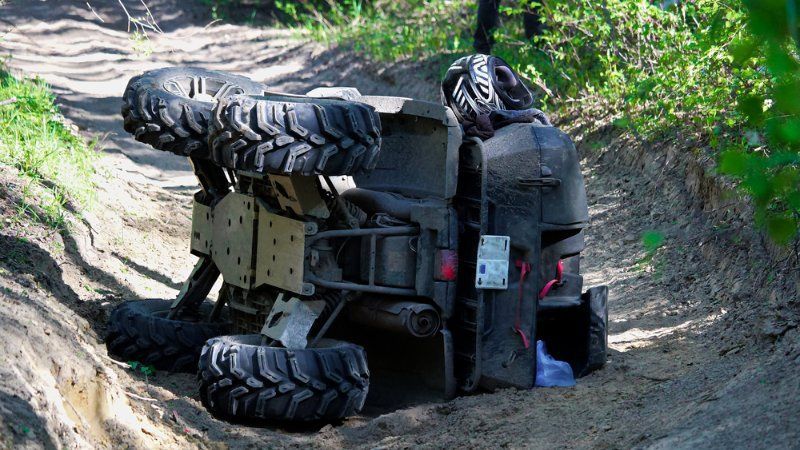
ATVs are similar to motorcycles, except most models have three or four-wheels and are specifically designed for off-road use. Because ATVs have no exterior shell to protect the riders, crashes often result in injuries. Taking the proper steps after an accident can protect your safety and financial security.
1. Move to Safety
Move a safe distance away from the crash site. If you can't move because of your injuries, call for help.
2. Call Emergency Services

Head injuries and injuries to internal organs may not be immediately apparent. Adrenalin may mask serious injuries, and some soft tissue injuries don't become painful until 24-48 hours later.
Even if you don't think you are seriously hurt, call 911 to dispatch EMTs and police. If the police do not come to the scene of the accident, call the police department or go in person to fill out a report.
If the EMTs tell you to go to the hospital immediately, follow their instructions. Otherwise, follow up with your physician or an urgent care clinic.
3. Secure Evidence
If someone else's negligence caused your ATV accident, you need evidence to prove it. If possible, take photos and videos of the accident scene, including the damaged vehicles. Be sure to photograph or make a video of any contributing factors, such as geography, weather conditions, road signs, or obstructions.
Photograph any injuries that resulted. Talk to any witnesses and get their contact information. Ask them to wait for the police and make a statement about what they saw.
4. Exchange Information
If the accident involved other people, get their names, addresses, and contact information. If they were driving an ATV or other motorized vehicle, ask them if they have insurance and get their insurance information, driver's license number, and license plate number. If the operator of the other vehicle is a child, get the parent's names and contact information.
5. Seek Compensation
If someone else caused your accident, you may be able to recover financial compensation for your injuries and property damage. Depending on the circumstances, you might pursue compensation by filing an insurance claim or a personal injury or wrongful death lawsuit.
6. Hire an ATV Accident Lawyer

The other party's insurance company or lawyer may contact you before you are even out of the hospital. Anything you say to the insurance company or other party's attorney could damage your case. Before you talk to anyone about your accident, you should get in touch with an experienced injury attorney in Phoenix.
7. Contact Your Insurance Company
Auto insurance doesn't usually provide coverage for ATV accidents. However, in some cases, your homeowners' insurance may provide some coverage.
If you have ATV insurance, it's a good idea to file a claim, even if you believe someone else caused the accident. However, you should talk to your attorney first.
Types of ATV Accidents
Though manufacturers design ATVs to handle rough terrain, these vehicles can be prone to flipping over or ejecting the rider. Because ATVs weigh several hundred pounds, the vehicle itself can cause severe injuries if it rolls over a passenger. There are several common types of ATV accidents.
Collisions
Collisions with another ATV, automobile, or object are the most common type of ATV accident. When collisions involve the negligence of property owners, manufacturers, or other vehicle operators, you may be able to recover compensation.
Equipment Malfunction
A manufacturing defect, such as brakes that do not function correctly, can cause a crash. Additionally, improperly installed or missing safety features can increase the severity of injuries that happen in collisions, rollovers, and other types of accidents.
Unsafe Premises
Unsafe conditions, such as loose gravel or unmarked barriers, can cause accidents. In some cases, the person or entity responsible for maintaining the property may be liable for injuries that result from these types of accidents.
Improper Maintenance
If you are a passenger on someone else's ATV and its poor condition causes an accident, the vehicle owner may be responsible for your damages for failing to maintain the vehicle properly. If you rent an ATV from a private owner or rental company and poor maintenance causes an accident, the rental company or vehicle owner may be liable.
Elements of an ATV Accident Lawsuit or Claim
The exact elements of a lawsuit or insurance claim vary depending on the circumstances. However, there are some commonalities you should be familiar with.
Negligence
The primary factor that determines whether you have a claim against another party is if someone else is responsible for your accident. For another party to be responsible, that party must have been negligent.
Negligence involves four legal concepts:
- Duty of care: The negligent party must have been legally required to take action to avoid injuring you.
- Breach of duty: The negligent party must have done or failed to do something that caused a breach of that legal duty.
- Causation: The negligent party's breach of duty must have caused your injuries.
- Damages: You must have compensable damages because of the injuries the negligent party caused.
If you can prove all four elements of negligence, the other party may be liable for your damages.
Liability
Liability is the legal responsibility a person or entity has to pay for damages caused to another person or entity. Because of Arizona's pure comparative negligence law, more than one party may have liability in an ATV accident.
For example, if a manufacturing defect contributed to your accident but you were also driving too fast for the terrain, a court may find that both you and the manufacturer share some of the fault. In this case, you could recover the percentage of your damages the court attributes to the manufacturing defect from the manufacturer, but not the portion caused by your unsafe operation of the vehicle.
The complexity involved in determining who is responsible and to what extent is one of the reasons it is a good idea to work with an accident attorney. Common factors that may result in liability for an accident include:
- Distracted driving
- Speeding
- Improper maintenance
- Driving while intoxicated
- Vehicle or safety equipment defects
The liable party in an ATV accident could be another ATV or automobile driver, a manufacturer, a government entity, an equipment rental company, or a property owner. Additionally, passengers injured on ATVs may be able to recover damages from the driver of the ATV they were riding on.
Injuries

ATV accidents commonly cause serious injuries, such as:
- Broken bones
- Concussions, skull fractures, and other head injuries
- Spinal cord damage
- Paralysis
- Limb amputation
ATV drivers and passengers can reduce the severity of injuries by wearing protective gear, such as helmets.
Damages
Damages from an ATV accident typically include monetary damages, such as medical bills and lost wages, and non-monetary damages, such as pain and suffering. These damages can range from a few hundred dollars to millions depending on several factors:
- Severity of injuries
- Permanent or long-term impact of injuries
- Amount and value of missed work
- Cost of medical care
- Share of fault
An accident that results in a death or permanent disability, such as a loss of a limb, traumatic brain injury, or paralysis, will usually have significantly higher damages than an accident that causes more minor injuries, such as a wrist fracture that heals fully in a few weeks. An attorney can estimate the value of your case based on your injuries, medical bills, employment history, and the cause of your accident.
Statute of Limitations
You have two years from the date of your ATV accident in Arizona to file a lawsuit. However, if you didn't discover your injury until after the crash, you may have two years from the date you discovered the injury.
If a state or local entity, such as a police officer, caused your accident, you may have as little as 180 days from the date of your accident to file suit. An accident attorney can identify any exceptions that apply to your case and ensure you don't miss any important deadlines.
The Role of Insurance in ATV Accident Claims
Many of the companies that sell insurance for cars, trucks, and motorcycles also sell ATV insurance. As with auto insurance, these policies may provide liability coverage and coverage for damage to the policyholder's property.
Arizona law requires all motor vehicles operated on public roads, including ATVs, to have minimum insurance policies. However, Arizona law does not require insurance for most ATVs that the owners never drive on public roads.
If you suffered an injury on someone else's property, that person's homeowner's or business owner's insurance may provide some coverage. Additionally, some people may have another type of liability policy that could apply to your accident. Because it can be difficult to recover a settlement from an uninsured individual, identifying potential insurance coverage is an important service a personal injury attorney can provide.
Arizona Rules and Regulations for ATV Operation
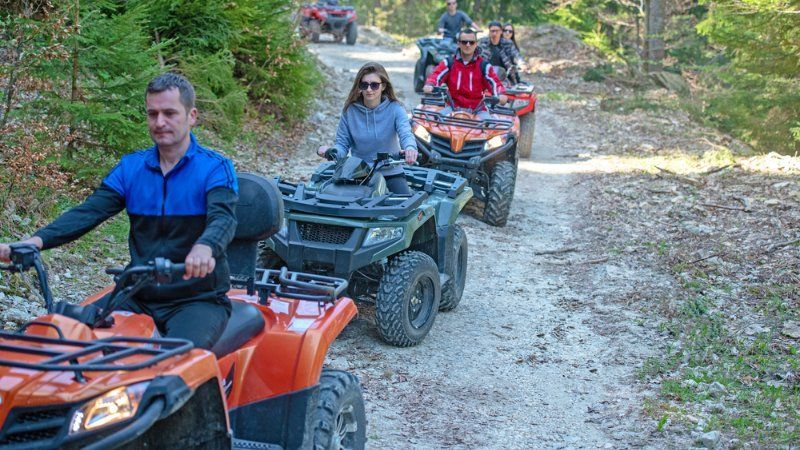
Arizona law restricts who can operate certain types of ATVs. Additionally, manufacturer guidelines may indicate the age, height, and weight of the person who should operate the vehicle.
People under the age of 16 can't legally operate a full-sized ATV in Arizona. Riders under the age of 18 must wear a properly fitted and fastened DOT-approved helmet. All riders must wear eye protection when operating an ATV on highways and streets.
You may only operate your ATV on roads, trails, and other areas designed by the land management agency for use by motorized vehicles. You may not operate your ATV recklessly. Passengers may only ride on ATVs designed to carry more than one person.
Arizona law requires all ATV operators to undergo training and licensing unless:
- They are participating in a one-time event.
- They are only loading or unloading the vehicle.
- They are on private land the entire time they are operating the vehicle.
- Law enforcement allows the operation of the vehicle due to an emergency.
Operators must follow all local regulations when crossing a public road with an unregistered ATV. Violating any of these regulations could impact your liability for an ATV accident similarly to how violating traffic laws impacts liability in an auto accident.
Arizona Regulations for ATV Safety Equipment
In addition to following the rules of operation, you must ensure your ATV is compliant with Arizona's equipment regulations. ATVs must have:
- A United States Department of Agriculture-approved spark arrestor device
- Brakes, brake lights, and at least one red rear deflector
- Lighted taillights and headlights when operated between a half hour after sunset and a half hour before sunrise
- Rearview mirror
- Footrests and a seat for the driver and all passengers
Additionally, sand dunes and some other designated areas may require you to attach a safety flag to your vehicle.
If you want to drive your ATV on a public road, you must register it with the state, purchase insurance, and your ATV must have:
- One or two headlights that shine for at least 500 feet ahead
- At least one red rear reflector and taillight visible for at least 500 feet
- A horn that you can hear at least 200 feet away
- Fuel tank cap
If your ATV fails to meet these safety standards, it could impact your share of fault for an accident.
Help With an ATV Accident in Arizona
The Sargon Law Group has extensive experience handling complex injury cases, such as those that result from an ATV accident. Our legal team will investigate the facts of your case, determine the liable parties, and help you recover the full value of your claim. Contact us today to schedule a consultation.
